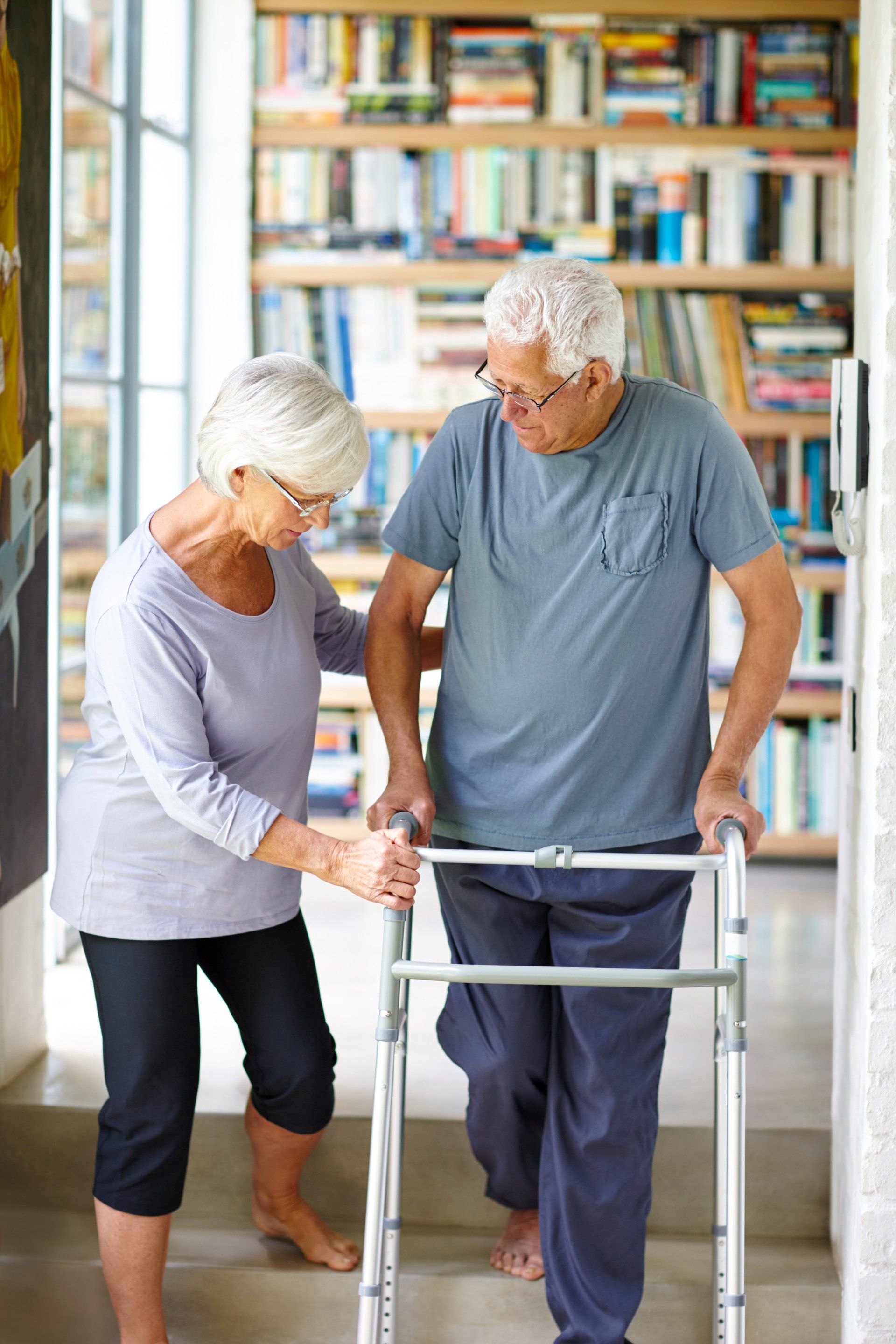Prevent Falls at Home
Stay Safe Outside the Hospital
Each year, millions of Americans go to the emergency room for fall-related injuries. Know what puts you at risk for a fall and how you can protect yourself. Health conditions, medicines and getting older can make you more likely to fall and get hurt.
Make a plan with your doctor to stay safe, and include the following tips:
- Limit how much alcohol you drink. Too much can make your bones weaker, and even a little can throw off your balance and reflexes.
- Keep your bones healthy by quitting smoking, doing weight-bearing exercises like walking, and getting enough calcium and vitamin D in your diet. (Most adults need 1,000 to 1,200 mg of calcium and 600 to 800 IU of vitamin D daily.)
- Exercise most days to keep your muscles strong and to help with coordination.
- Activities like yoga can help with balance and flexibility, while resistance and weight training will help you stay strong.
- Get your hearing checked at least every three years, and be sure to have a yearly eye exam.
- Aim for 7 to 8 hours of sleep each night, and drink water throughout the day to prevent dehydration.
Your doctor can make recommendations to fit your specific health needs, so always check with him or her before making any lifestyle changes.
Checklist to Fall-Proof Your Home
- Keep your home well lit, and have flashlights on hand for emergencies.
- Make sure floors are even and not slippery.
- Secure rugs to the floor.
- Make sure walkways are clear of clutter.
- Install handrails on stairways and grab bars in bathrooms.
- Use furniture that lets your feet touch the floor with your knees at a 90-degree angle.
- Keep items you use often—or may need in an emergency—within easy reach.
3 Conversations With Your Care Team
- Tell your doctor about any falls since your last checkup.
- Talk to your doctor or pharmacist about possible side effects of your medicines, like dizziness or sleepiness.
- Moving less can make you weaker and more likely to fall. Let your doctor know if you avoid everyday tasks or exercise because you’re afraid of falling.
Tools to Keep You Safe
Prevent falls at home by using special tools in your everyday life. Ask your doctor about walking aids like canes that can help keep you balanced. You can also use reacher and grabber tools to pick up items without climbing or bending over.
Proper clothing is important too. Wear well-fitting shoes with backs, rubber soles and low heels. In addition to always getting up slowly, wear pressure stockings so you aren’t lightheaded when you stand up. You may also wear a necklace with an emergency response button that lets you call for help in case you fall.
What to Do if You Fall
Take some deep breaths and try to stay calm. Ask someone for help or call 911 if you can’t get up or are injured (especially if you hit your head). They can help you up and take you to the doctor.
Be Positive, Be Prepared
Many people feel embarrassed about needing to make changes to their home or lifestyle to prevent falls—but safety is nothing to be ashamed of. In fact, tools like grab bars and walkers allow you to do more activities independently. Knowing you are safer can bring you and your loved ones more peace of mind.

